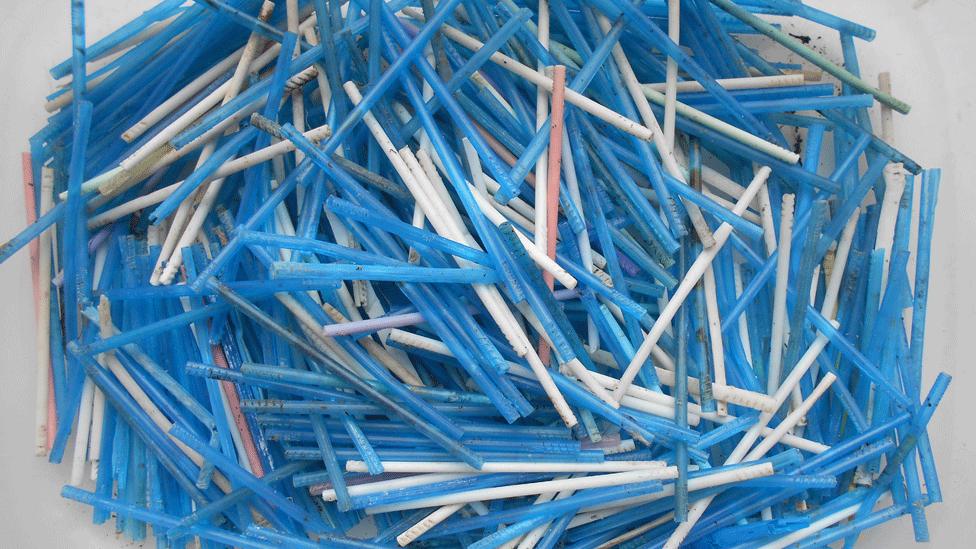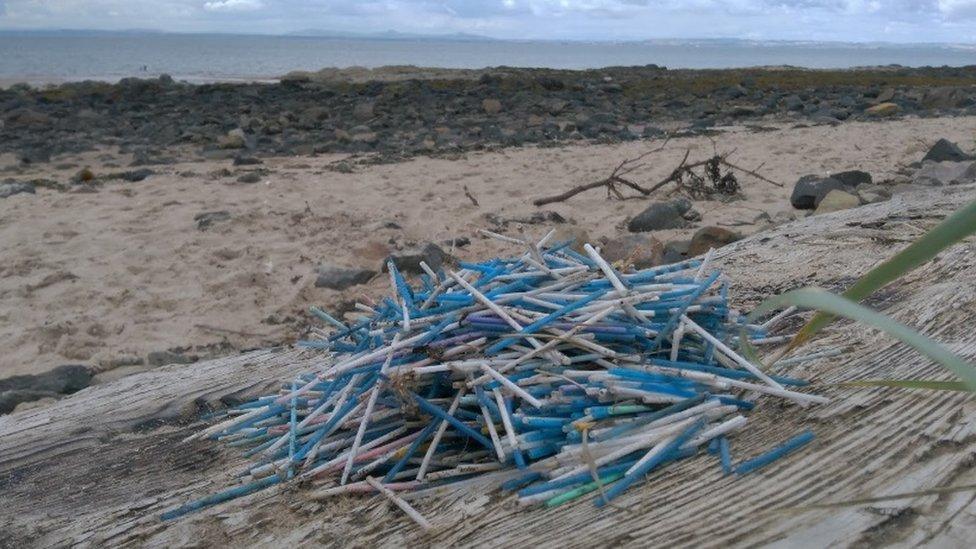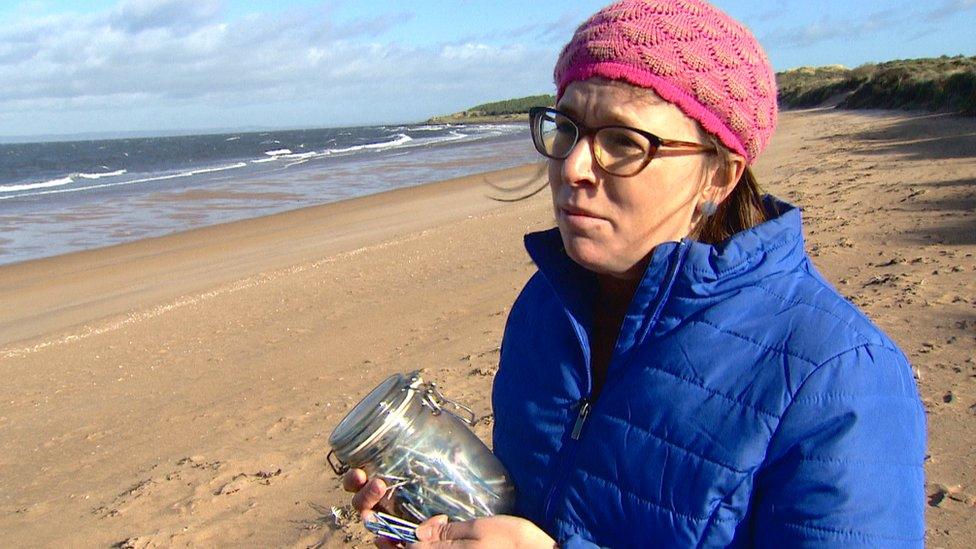Plastic-stemmed cotton buds now banned in Scotland
- Published

Johnson and Johnson's iconic blue cotton bud stems are no longer made from plastic
New laws have come into force in Scotland banning the sale and manufacture of plastic-stemmed cotton buds.
The move follows concerns about the number of buds washing up on beaches after being flushed down toilets.
Most major retailers switched to paper-stemmed buds in the months leading up to the ban following a campaign.
A similar ban - also including plastic coffee stirrers and straws - comes into force in the rest of the UK next year.
Cotton buds are consistently listed in the top 10 forms of beach litter by the Marine Conservation Society.

Thousands of plastic-stemmed buds have washed up on beaches around Scotland
Across the UK, about 1.8 billion of them are sold every year.
In 2017, the pharmaceutical firm Johnson and Johnson became the first major manufacturer to switch away from plastic.
All the major supermarkets have followed suit by either switching to biodegradable paper or committing to doing so.
Waitrose is estimated to have saved 21 tonnes of plastic through the policy.
Scottish environmental charity Fidra and its volunteers have been at the forefront of working with the industry to promote biodegradable alternatives.

Fidra's Heather McFarlane says the buds are particularly harmful to wildlife
It praised the Scottish law change as "great news" for wildlife and the environment.
The charity's project manager Heather McFarlane said: "Now we are seeing this ban come into place, that will pick up those last few retailers and manufacturers who haven't made the switch from plastic to paper.
"The plastic cotton bids have been washing up on beaches for years and they get into the environment in quite high numbers.
"They are particularly damaging to wildlife. They have been found in our native bird populations and in the intestines of turtles. You can just imagine the damage that can do."
'Ambitious action'
WWF Scotland director Lang Banks said: "Cotton buds are some of the most pervasive forms of marine pollution, so a ban is very welcome step and one that we hope other countries will follow.
"We know plastic is suffocating our seas and devastating our wildlife with millions of birds, fish and mammals dying each year because of the plastic in our oceans.
"Plastics are also finding their way into the food we eat and the water we drink, so saving our oceans will require further ambitious action from governments, industry and consumers."
- Published11 January 2018
